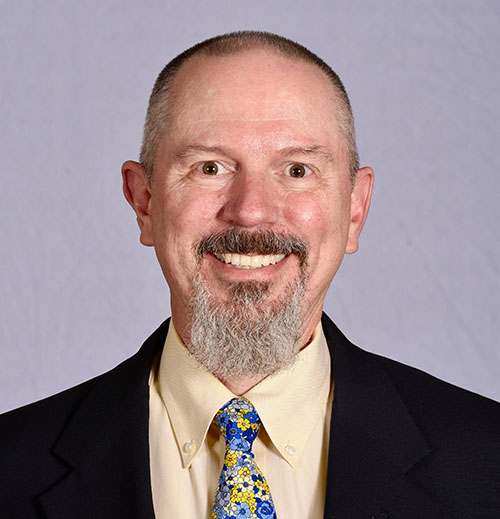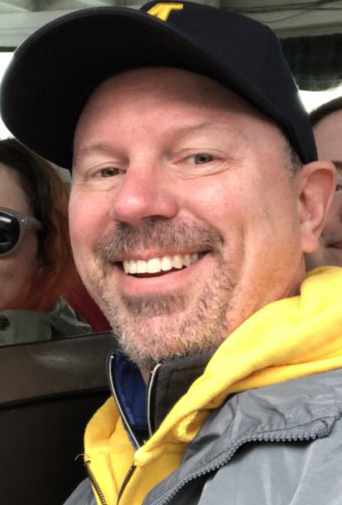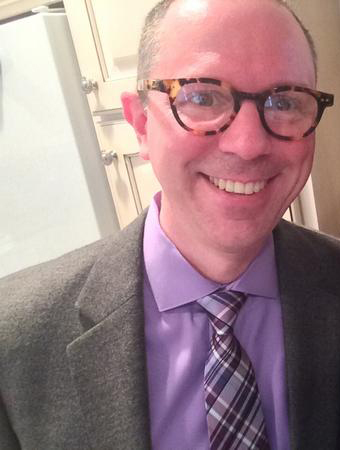When Wayne State University political science doctoral student Jim O’Donnell considers how political and social opinion among white Americans have been radically shifting in the past several years, he doesn’t necessarily need to consult reams of research or pore over sociological studies.
Sometimes, O’Donnell says, it’s as simple as a trip to a local gun store.

“I was in a gun store in Macomb County on the Saturday after the presidential election in 2020, and it was alarming,” recalls O’Donnell, a Ph.D. candidate who also has taught at Wayne State. “It’s one of the best places to hear this kind of fear that many white people have. There were also African Americans in that gun store, but they weren’t the ones yapping about all this Second Amendment stuff. Whites in these spaces think they’re just going to arm themselves and protect themselves from some threat, but really a lot of that is fear, fear of anybody who doesn’t look like them, immigrants, people who don’t speak their language.”
For the past few years, O’Donnell, 55, has grown familiar with that fear, with the bizarre and dishonest justifications behind it, and with the potential that racial fear has to undermine American democracy. As part of his graduate studies work, in fact, O’Donnell has devoted himself to examining the relationship between white identity and increasing efforts, such as draconian voter restriction laws in Georgia and other states, to make it harder for non-whites to votes.
Earlier this year, O’Donnell gave a striking presentation of his work, titled “Support for Voter Restrictions: White Identity as a Factor,” as part of a Graduate School symposium and is now gazing down the road to see how his research and findings can be leveraged ahead of upcoming elections this November to help protect voting rights.
“I want to see how issues of white identity can be worked around,” he explains. “How can activist groups — groups like Fair Fight that are working to mobilize the electorate — deal with these restrictions?”

Citing scholars such as University of Chicago political science professor Michael Dawson and Duke University political science professor Ashley Jardina, O’Donnell says that studies underpinning his own work show that the idea of racial identification among certain voting blocs isn’t unusual — but that the levels of hostility generated by the various groups is.
“There's some solidarity among people who don't identify as African American but see themselves as Black, like Caribbean people, people in the African diaspora and so forth. Hispanics, Asian Americans, too, all those groups expressed varieties of in-group favoritism being protective,” points out O’Donnell, who also credits WSU political science professor Ronald Brown, an expert researcher on race and religion, for helping to shape his work. “We have warm feelings about people in our group — but whites in particular had more ‘out group’ hostility.
“And this isn't like the extreme versions of white supremacy, white nationalism. This is garden variety stuff, and you see it in policy. Like, why are some policies, like welfare, racialized while other policies, such as social security, are not racialized? It's largely the perceptions among what whites think. Whites are the ones that racialize policies.”
O’Donnell says that his curiosity about the issue was sparked by the surprising outcome of the 2016 presidential election, which Donald Trump won following a campaign that often made racialized — and, to many, outright racist — appeals to white conservatives.
“He engaged this group of white voters that had really not been activated by the Republican Party for the most part,” says O’Donnell. “I wanted to know what was going on behind some of that. I wanted to study the issue of the activation of white racial resentment.”
When he entered the political science program at WSU in 2019, O’Donnell saw his opportunity to investigate. And then came Trump’s subsequent loss to Joe Biden in 2020, which the former president and his supporters falsely blamed on unfounded claims of voter fraud, leading to a raft of voter suppression bills from conservative state legislatures nationwide.
“We saw an increase in efforts to resist further expansion of the vote on the part of many Republicans who hold elected office,” O’Donnell says. “And then also an attempt to restrict the vote, to strike people off the registration rolls, change where precincts are located. All this stuff that makes it harder to access. And I thought that those would be aligned because the existing research shows ethnocentrism and fear or distrust of ‘out’ groups, particularly among whites on certain policy issues. So why wouldn't that be at play here? And how does white identity play into that?”
O’Donnell says that racialized voter suppression efforts increase the burden on groups that work to mobilize voters in communities of color, forcing them to divert precious resources to fight restrictions and civil-rights rollbacks: “I view that as essentially a poll tax. Because of these restrictions, that labor and that money have to be assigned to getting people to vote instead of going to other uses.”
O’Donnell says political leaders in many urban and suburban areas face a similar challenge in deciding how to allocate already-limited resources to fight against voter suppression: “How are election administrators going to deal with it? Because election administrators in predominantly African American jurisdictions have to be on their game because of the scrutiny that these legislators and these Trump-type people have put on them.”
A former school board official in Ferndale nearly a decade ago, O’Donnell says he’s encountered first-hand the racialized fear that has inspired his work.

“Ferndale was the first northern school district where the Justice Department sued because of segregation,” he says. “Ferndale had set up segregated schools starting in the ’20s. Now they didn't explicitly use language, like was done in the south, but they did everything else. One of the things that I think has happened in Ferndale is a sustained effort, since the ’70s, when a new school board [whose progressive slate included his uncle, Frank O’Donnell] came in promoting more racial justice.
“I was elected to the Ferndale school board in 2012. And from the beginning, we explicitly set out a policy of racial equity and breaking down the systemic parts of the school district. We had a magnet school that was 80 percent white in a school district that overall is 60 percent black. One of the first things we had to do as part of our plan was change that. There was a big fight. People lost so-called friends over it. We didn't lose enrollment because of that. Some people left, yes, but fewer people than before, under the old system. Now, people wonder what all the fuss was about — but that was when issues of race and fear became most tangible to me.”
And that experience, he says, is part of what motivates him to examine issues surrounding white identity and voting rights and, more importantly, what drives his desire for fairness and justice at the ballot box.
“It’s not a component of my research just yet, but I’m wondering how do you mitigate (voter suppression)? What are activists doing to take countermeasures against this fence that people are trying to metaphorically create around the ballot box?” he asks. “If we're going to have a classically liberal democracy — where you have rights and you engage in voting to express your views and choose your representatives, consent to your government through your vote — then everyone needs to have access to that. And understanding why some people want to restrict the vote is an important part of that.”
